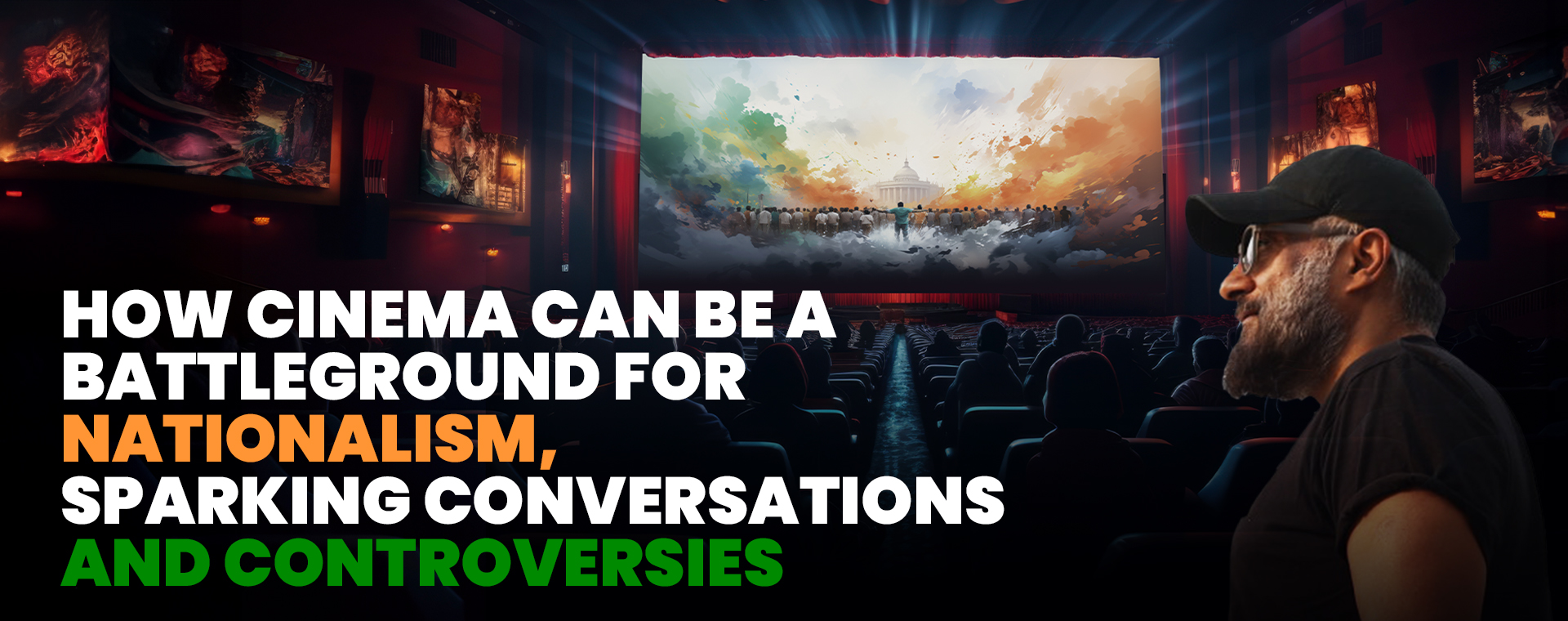

The Power of Nationalism in Cinema: An Analysis Through Vivek Ranjan Agnihotri’s Lens
Discover how Vivek Agnihotri’s films turn the cinema screen into a battleground for nationalism, sparking conversations and controversies that resonate far beyond the theater.
Nationalism in cinema has long been a powerful force, evoking deep emotions and sparking collective consciousness among viewers. Indian cinema, with its vast audience and rich storytelling traditions, provides a unique canvas for exploring themes of nationalism. Through the lens of acclaimed filmmaker Vivek Ranjan Agnihotri, known for his bold and thought-provoking films, we delve into how nationalism is portrayed in Indian cinema and its impact on society.
Vivek Agnihotri’s Cinematic Approach to Nationalism:
Vivek Agnihotri has consistently utilized his films to probe and present complex national issues with a distinct sense of patriotism intertwined with realism. His approach often challenges the status quo, pushing the audience to rethink their perspectives on national identity and pride. Films like The Tashkent Files and The Kashmir Files not only entertain but also stimulate intellectual engagement, encouraging viewers to critically engage with their history and societal issues.
The Role of Cinema in Shaping National Identity:
1. Education Through Entertainment:
Cinema, with its unique ability to educate while entertaining, becomes a powerful tool for spreading historical and cultural awareness. Agnihotri’s films often incorporate significant historical narratives that bring forgotten or lesser-known stories to the forefront, thereby enlightening the public about national identity.
2. Unity and Diversity:
Films that explore themes of nationalism also play a crucial role in uniting diverse audiences. They remind viewers of shared values and collective struggles, thereby fostering a sense of national unity despite cultural, linguistic, or religious differences.
3. Patriotism vs. Jingoism:
Agnihotri’s work draws a clear line between healthy patriotism, which promotes love and pride for the country, and jingoism, which often leads to intolerance or aggression. This distinction is crucial in understanding the impact of nationalism in cinema, as it influences how audiences interpret and react to the content.
Impact of Nationalistic Films on Public Discourse:
Influence on Public Opinion:
The impact of films with strong nationalistic themes on public opinion and political discourse is profound. Filmmakers like Agnihotri can shape viewers’ perceptions and views on national issues by presenting narratives that resonate with patriotic sentiments. This influence underscores the societal implications of nationalistic films, prompting viewers to critically engage with the content.
Catalysts for Dialogue and Debate:
Such films often become catalysts for dialogue and debate, sparking discussions in both digital and real-world spaces. This interaction further extends the life of the film beyond the screen as it continues to be analyzed, criticized, or celebrated in various forums.
Challenges and Responsibilities of Filmmakers:
Balancing Narrative with Sensitivity:
Filmmakers tackling nationalistic themes must balance narrative drive with cultural sensitivity. Handling historical and national issues carefully is essential to avoid misrepresentation or oversimplification that could lead to misinformation or societal divisions.
Ethical Storytelling:
Ethical storytelling is paramount, especially when dealing with actual events or figures. The responsibility lies in presenting stories that are factually accurate and respectful of all perspectives, avoiding the perpetuation of stereotypes or biases.
Conclusion:
The power of nationalism in cinema, especially in Vivek Ranjan Agnihotri’s works, offers a profound insight into potential films to shape national consciousness. As viewers, it becomes imperative to approach these films critically, recognizing the fine line between inspiration and influence. As Agnihotri’s films show, cinema is not just a reflection of society but also a force capable of shaping it.
A National Call to Action:
Engage with Vivek Ranjan Agnihotri’s films and join the conversation about nationalism in cinema. Reflect on how these narratives have influenced your understanding of national identity and pride. Share your thoughts and discussions online, contributing to a broader dialogue about the role of cinema in national discourse.






